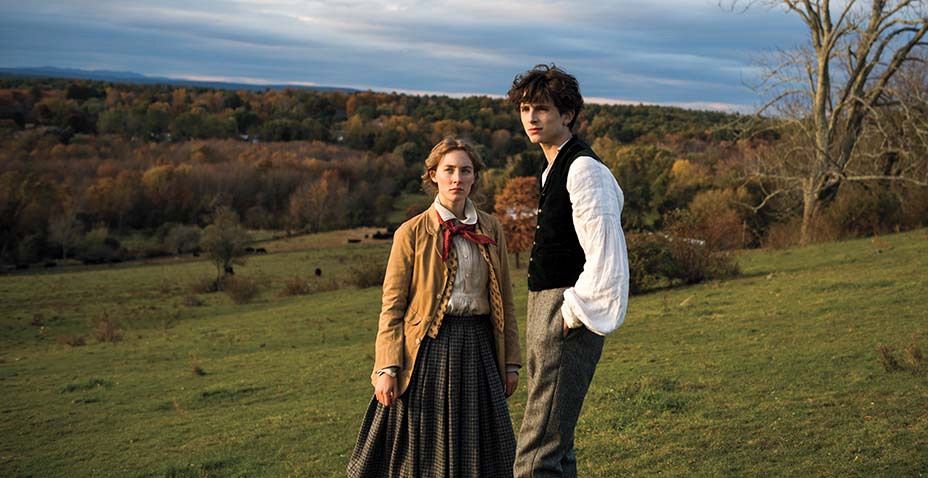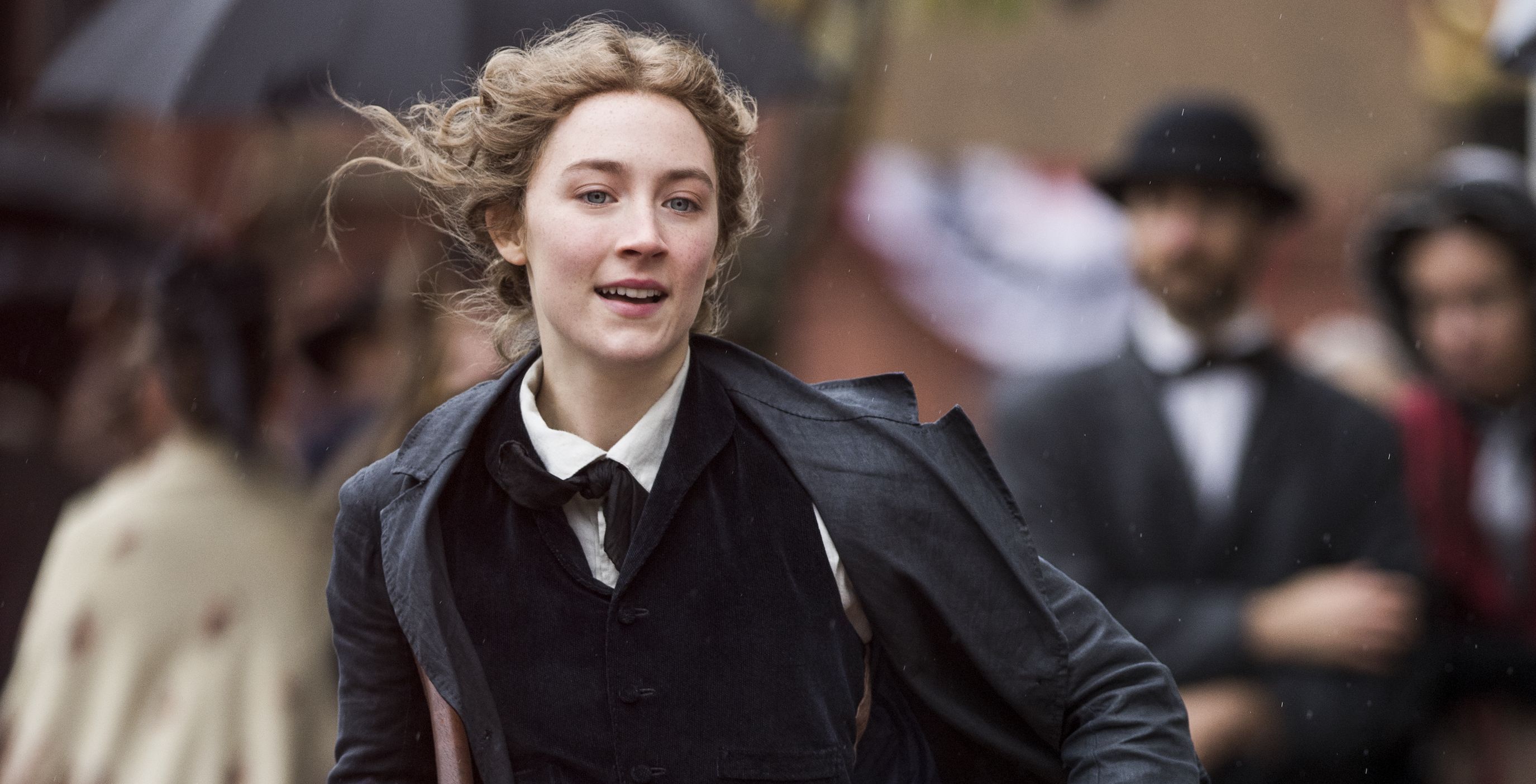"Well, it's just about our little life," the film's heroine, Jo March, says when asked what she's writing.
Little Women is a literary classic by Louisa May Alcott, adapted to the screen by Greta Gerwig in 2019 following a number of previous film adaptations. Gerwig has said that it was the book of her youth, and it made her want to become a writer and a director. Indeed, her storytelling and artistic sensibilities mirror those of the story's main character and aspiring writer Jo, as we’ll see.
Jo is played by Saoirse Ronan, and she and her sisters Meg (Emma Watson), Amy (Florence Pugh), and Beth (Eliza Scanlen), try to make a living in 19th century Concord, Massachusetts, while their father is away fighting in the Civil War. Under their mother's loving eye (Laura Dern), the March sisters navigate family life, their different personal interests and inclinations, studies and livelihood, romances and marriage prospects, and simple joys and major illness.
It's one of those films where, without earth-shattering plot twists or anything that sounds like a major announcement, everything in fact happens. Sharply drawn lives emerge out of the series of their everyday joys and pains. There's a great artistic truth that's achieved by this mode of storytelling, and it pulls us in.
Why the March Family's Life Effortlessly Pulls Viewers in
Gerwig's adaptation is one of these great films that have a "lived-in" quality, where the characters feel like they've inhabited and will continue to inhabit their world long before and after the audience has come and gone. They feel comfortable and natural in it, rather than being forced into moves that serve pre-specified purposes of scenes in a film.
What pulls us in is the sense of truth that emerges from that. The characters are not performing any acrobatics for the sake of the narrative. The film lets them be, and they come across as engaging human beings. It's a mode of storytelling where it's the cumulative sum of everyday moments that shapes the broader story and the broader meanings, and not the other way around.
What Happens in the Ending
In the original novel, Jo marries by the end. The film's ending, however, is different. It sees an unmarried Jo trying to sell her story to a publisher, who refuses to publish a book about a young woman who hasn't found love. Jo then writes a different ending to please her publisher, which the film plays as a romantic fantasy sequence, complete with a kiss in the rain. It's unclear at first whether the sequence is imaginary, but then, it's broken by a reality in which Jo has profited from giving the publisher what he wants, while she resumes her life on her own terms, helped by the book's success.
How the Ending Affirms the Spirit of the Film
Gerwig's twist on the book's original ending has been widely characterized as a modern-day feminist take, fooling and upending men's narratives of the time in which it's set. But it would be a mistake to miss another reading of the ending. In a broader sense, the ending is about the same idea that informs the spirit of Gerwig's film: that stories (in this case Jo's) should be allowed to take form with a degree of spontaneity and discovery, as an accumulation of truthful episodes. The episodes shouldn't be coerced to serve what has already been too firmly decided is the optimal, most meaningful overall structure. It's a key principle of artistic works, and the same goes for life stories. Some broad goals are defined at the start, but natural flow, self-observation, and update have to guide the rest of the process.
In the case of this particular story, Jo is a young woman who hasn't got everything precisely figured out. She's wrestling to reconcile her wish to be with somebody and her desire not to be defined only by the role of a lover. "I'm sick of people saying that love is all a woman is fit for," she says. "I'm so sick of it! But – I'm so lonely!" Her sister Meg is happily married and not given short shrift by the film in any way for her choice, but Jo is a different person, with a different set of interests and challenges, and she hasn't married. She's telling that story - her story. One could even say it's the story of someone who, by the end, hasn't married... yet. But even that is not good enough to satisfy the rigid narrative the publisher of her novel expects.
By superimposing two endings — a fake one to be sold to the publisher like a lie might be fed to children, and a real one — Gerwig has created a conclusion that simply wishes to stay faithful to the way her film and its heroine have done things all along, which is to honor the unfolding truth of things above any narratives that are too tightly scripted.




